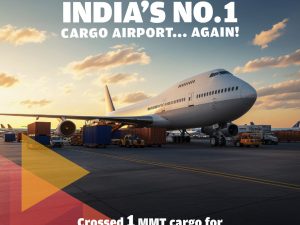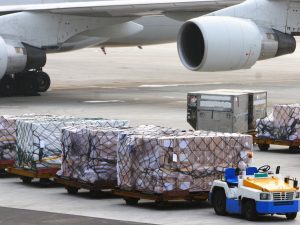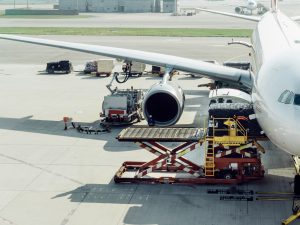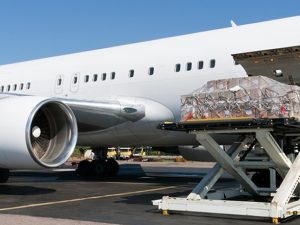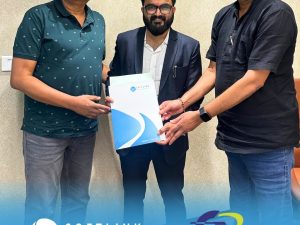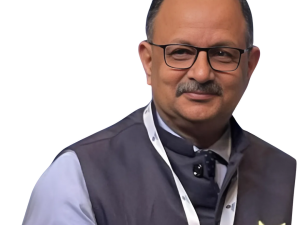Delhi International Airport Limited (DIAL) crosses 1 MMT in cargo handling, consequently becoming India’s No.1 cargo airport, two years in a row. In FY’25 alone, Delhi Airport handled 1.1 MMT, with a YoY growth of 11 per cent, maintaining the top spot in India. With world-class infrastructure and the capability to manage everything from perishables to high-value cargo, Delhi Airport continues to strengthen India’s air cargo network.
Read More »Zhejiang launches cargo air corridor to Central Asia
The first dedicated cargo air corridor from Zhejiang, China, to Central Asia commenced operations. A Boeing 767 freighter from Uzbekistan’s carrier, My Freighter, left Hangzhou Xiaoshan International Airport for Tashkent carrying over 50 tons of essentials and apparel. The route marks Hangzhou Xiaoshan’s second foreign cargo pathway this year, pushing regular international routes to 20, and almost 100 weekly flights. Airports in Zhejiang manage 53 international cargo routes. The service runs on Wednesdays and Sundays, taking roughly six hours per trip. Return flights are set to deliver fresh produce from Uzbekistan back to China. Xu Jie from Zhejiang Donglixin Supply Chain Management Co., Ltd. stated, “More flights will be added to the route in the future in response to strong market demand.” Hangzhou customs highlighted plans to refine customs operations and cut logistics expenses.
Read More »June air cargo demand up 0.8% despite disruptions: IATA
The International Air Transport Association (IATA) released data for June 2025 global air cargo markets showing Total demand, measured in cargo tonne-kilometers (CTK), rose by 0.8 per cent compared to June 2024 levels (1.6 per cent for international operations). Capacity, measured in available cargo tonne-kilometers (ACTK), increased by 1.7 per cent compared to June 2024 (2.8 per cent for international operations). “Overall, air cargo demand grew by a modest 0.8% year-on-year in June, but there are very differing stories behind that number for the industry’s major players. Trade tensions saw North American traffic fall by 8.3% and European growth stagnate at 0.8%. But Asia-Pacific bucked the trend to report a 9.0% expansion. Meanwhile disruptions from military conflict in the Middle East saw the region’s cargo traffic fall by 3.2%,” said Willie Walsh, IATA’s Director General. “The June air cargo data made it very clear that stability and predictability are essential supports for trade. Emerging clarity on US tariffs allows businesses greater confidence in planning. But we cannot overlook the fact that the ‘deals’ being struck are resulting in significantly higher tariffs on goods imported into the US than we had just a few months ago. The economic damage of these cost barriers to trade remains to be seen. In the meantime, governments should redouble efforts to make trade facilitation simpler, faster, cheaper and more secure with digitalization,” said Walsh.
Read More »Trump announces 25% tariffs on import goods from India
US President Donald Trump has announced his decision to impose 25 per cent tariffs on goods imported from India along with an unspecified penalty on India for buying Russian oil and weapons starting 1 August. “Remember, while India is our friend, we have, over the year done relatively little business with them because their tariffs are far too high, among the highest in the world and they have the most strenuous and obnoxious non-monetary trade barriers of any country,” Trum said in a post. Reacting on how the decision will impact the trade, Sunil Kohli, MD, Rahat Cargo said, “The sudden announcement of a 25 per cent tariff on Indian goods, while higher than anticipated, broadly falls within the 15–20 per cent range that markets had been bracing for. This could well weigh on near-term export competitiveness and trigger currency volatility if sentiment deteriorates. What is more concerning is the penalty clause, which remains unquantified at this stage. However, if the tariffs stay at 25 per cent for an extended period, the impact could be significantly negative. The agricultural and dairy product protections remain primary concerns, as these sectors are politically and economically sensitive for India. Hence, India is negotiating with the US against any tariff reductions on dairy, rice, wheat and genetically modified (GM) crops like corn and soybeans citing the livelihoods of over 700 million rural citizens, including 80 million smallholder dairy farmers. Many Indian exporters are now preparing for the worst. The newly imposed tariff could affect products like gems and jewellery, auto parts, seafood, textiles and chemicals as these are major exports to the US. In 2024, India exported goods worth $87 billion to the US …
Read More »Shipway unveils ShipNotes to streamline logistics
Shipway launched its e-commerce logistics report, ShipNotes, which offers data-driven insights into one of the most critical challenges facing Indian e-commerce: Return to Origin (RTO). The analysis is based on millions of D2C brands’ shipments processed through Shipway in FY25. RTO refers to instances where an online order is shipped but fails to reach the customer, resulting in the product being returned to the seller. This phenomenon, often caused by failed delivery attempts, inaccurate addresses, or customer refusal, significantly impacts D2C brands – increasing logistics costs, blocking inventory, and eroding profit margins. The report highlights that less than 2% of prepaid orders are returned, while nearly 26% of the non-prepaid orders are returned, reinforcing that RTO challenges are overwhelmingly concentrated in non-prepaid transactions. Therefore, this edition of ShipNotes focuses exclusively on the trends and drivers behind RTOs for Cash on Delivery (CoD) orders.
Read More »Rajkot Int’l Airport gets green nod to commence cargo ops
Rajkot International Airport has finally received the formal approval to commence cargo operations through its passenger terminal, as the airport’s dedicated cargo terminal remains under construction. The move comes as a major relief for local silver, gold and imitation jewellery manufacturers, who are among the primary users of air cargo services in the region and were facing difficulties.
Read More »‘FTA will strengthen EXIM and logistics trade’
Huned Gandhi, Managing Director, Air and Sea Logistics Indian Sub-continent, Dachser India said, “The India-UK FTA is a welcome step towards strengthening the trade between the two economically powerful nations. This important step will create significant opportunities for business growth and pave the way for closer ties in the coming years. For the logistics sector, including players like DACHSER, this is a welcome move that will help us develop this important trade corridor, we already have a robust network of own offices in the UK and we can provide the much-needed logistical support to our values clientele in both the countries. As the agreement moves towards implementation, its benefits are likely to become increasingly visible across the freight sector. Overall, it’s a positive development for the Indian EXIM and logistics community.”
Read More »Softlink signs MoU with Globelink to build trained workforce in logistics
Softlink Academy, the skilling and education initiative of Softlink Global has signed MoU with Globelink WW India. The partnership aims to build a future-ready workforce for freight forwarding, customs brokerage and allied logistics services. The collaboration brings together Softlink’s three decades of expertise in logistics technology with Globelink WW’s extensive operational network and recruitment reach. The joint objective is to deploy job-ready professionals across India, the Middle East and Africa—equipped with practical knowledge and real-world tools. With 26 locations across India and the global footprint of the Globelink Group—spanning 100 offices in 30 countries—Globelink WW offers a powerful platform to deliver world-class freight solutions backed by local experience and global capability. Under this partnership, Softlink Academy will provide Globelink WW India with access to a certified talent pool drawn from two targeted training programs: LogiLEARN: LogiLEARN integrates logistics technology into academic curriculums, enabling students to graduate with both theoretical knowledge and practical skills by preparing them for mid-level job roles through domain-focused learning and in-depth training on Softlink’s ERP platform, Logi-Sys. LogiSKILL: LogiSKILL provides a strong foundation in logistics operations by equipping participants with the skills needed for entry-level roles such as documentation, customs clearance, and customer service, through focused training on the fundamentals of freight forwarding, CHA processes, and system navigation. All candidates will be assessed and certified across functional modules such as: Documentation and compliance Shipment lifecycle handling Customs clearance procedures Freight and finance operations System-driven reporting and process execution Key Program Elements Include: ERP-based, hands-on training on Softlink’s Logi-Sys platform Job-focused modules for roles like Documentation Executive, Customer Service Agent, and Freight Operations Coordinator Real-time exposure to Globelink’s live operational processes Placement support across Globelink’s 26 Indian …
Read More »‘Better multimodal integration & infra upgrades crucial’
To make India a world leader in cargo logistics, several key policy reforms and innovations are essential,” said Keku Bomi Gazder, CEO and MD, Aviapro Logistic Services. He added, “First, logistics costs must be reduced—from the current 13–14 per cent of GDP to global benchmarks of 8–10 per cent —through better multimodal integration and infrastructure upgrades. Continued expansion of dedicated freight corridors and multimodal logistics parks is vital. Simplifying and digitising regulatory procedures, especially customs and clearances, will improve efficiency and reduce delays. Policies should also support seamless movement across states by harmonising taxes, documentation, and toll systems. Private sector participation and public-private partnerships (PPPs) in logistics infrastructure must be encouraged through transparent frameworks. Innovation through adoption of AI, IoT, and blockchain for real-time tracking and supply chain visibility can boost competitiveness. Additionally, skill development and a national logistics workforce strategy are needed to support sectoral growth. Coordinated implementation of the National Logistics Policy with state-level alignment will be crucial to transforming India into a global logistics hub.”
Read More »Karnataka govt plans to build MMLP in Karikad
The Karnataka government has identified Karikad near Mangaluru as a key location for developing a world-class multimodal logistics park to facilitate freight movement and industrial growth, said reports. S Selvakumar, Additional Chief Secretary, Commerce and Industries Department, said at a Logistics Summit in Mangaluru that Karikad’s strategic proximity to the Mangaluru Port, railway infrastructure and national highways makes it an ideal site. “The park will serve as a crucial node in the state’s logistics corridor, connecting coastal Karnataka with the hinterland,” he noted. He said, “the proposed park is expected to ease freight transport, reduce turnaround time for goods movement and provide dedicated infrastructure to support Karnataka’s growing manufacturing and export sectors.”
Read More » Cargo Breaking News
Cargo Breaking News
